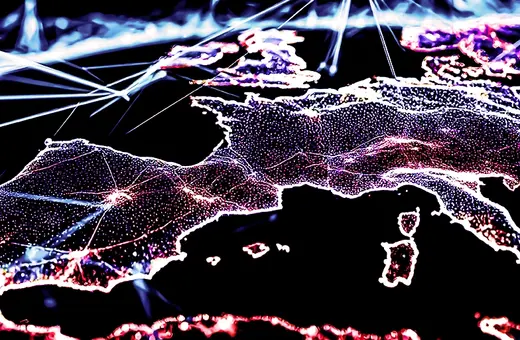Despite a heated debate at COP28 over whether the world should be phasing-out fossil fuels altogether, Net Zero remains the collectively agreed target. But as Mike Hulme argues, Net Zero is both a misguided and dangerous goal. It reduces the complex problem of climate change to an over-simplistic metric, and ignores the unintended consequences of the policy, many of which would exacerbate the problems that climate change poses in the first place.
At various times in human history, the world’s community of nations has been urged by campaigners to come together around a universal moral goal. Examples might include ‘the rights of man’, the abolition of slavery, the Universal Declaration of Human Rights, or ‘making poverty history’. Within the last 10 years a new goal has gained global recognition and ascendancy: securing ‘net-zero emissions’. I believe collapsing global policymaking for the future around this singular goal is both misguided and dangerous: misguided because ‘net-zero’ obscures many important welfare and ecological goals; and dangerous because such a narrow policy focus creates unwelcome secondary consequences.
Towards the end of the 2000s, a change occurred in the way in which future emissions of greenhouse gases were imagined by scientists. Rather than focusing on different emissions pathways into the future – for example, ‘high’ or ‘low’ emissions paths – the argument gained traction that it was the total cumulative emissions of carbon dioxide that would largely determine future global temperature. It was thence only a short step from cumulative emissions to the notion of an ‘allowable carbon emissions budget’ for a given temperature target. In other words, the question could now be asked, ‘How much of this emissions budget is there left to “spend” if 2°C, or 1.5°C, of warming is the desired global temperature?’
___
The net zero imaginary leads to an unyielding determination to pursue a single goal without considering – or certainly without carefully considering – the broader context of why climate change is a matter of concern in the first place.
___
The IPCC's Fifth Assessment Report in 2013/14 reified this concept of a cumulative carbon budget and promoted the translation of abstract global temperature goals into net zero emissions targets. This idea of an allowable carbon emissions budget has had important consequences for policy framing and for the wider cultural imagination around climate change. By being linked to a global temperature threshold, the budget metaphor stimulated the imaginary of ‘exhausting’ or ‘exceeding’ the allowable emissions. As a consequence, in order to ‘expand’ the allowable carbon budget to prevent its exhaustion, technologies for carbon dioxide removal became much more attractive. Thus, according to the OED, ‘net-zero’ emissions is defined as achieving “an overall balance between the amount of carbon dioxide and other greenhouse gases [emitted] and the amount removed from the atmosphere”.
 SUGGESTED READING
The fantasy of sustainability
By Thom Brooks
SUGGESTED READING
The fantasy of sustainability
By Thom Brooks
The new policy imaginary of net zero became institutionalised during the period 2015–2018. But collapsing the sole object of climate policy to delivering net zero creates what author James C. Scott refers to in his classic book Seeing Like A State as ‘a narrowing of vision’. The net zero imaginary leads to an unyielding determination to pursue a single goal without considering – or certainly without carefully considering – the broader context of why climate change is a matter of concern in the first place. NZ thus becomes a double-proxy for human and ecological welfare. Global temperature is itself a dangerously reductionist proxy for planetary welfare and net zero became a derivative proxy for global temperature.





















Join the conversation